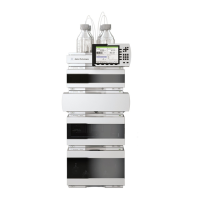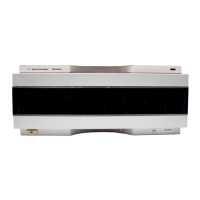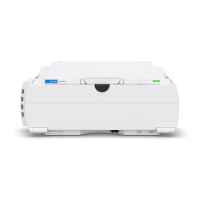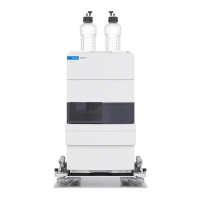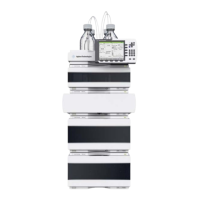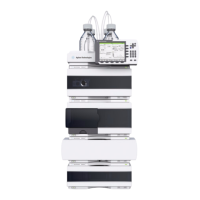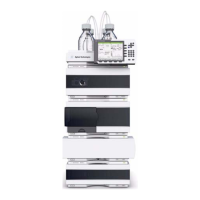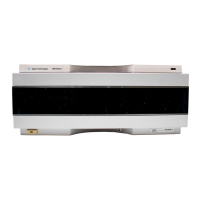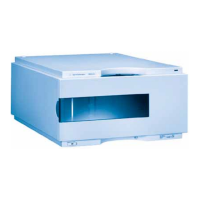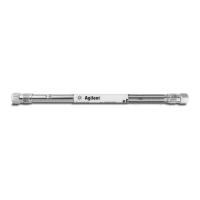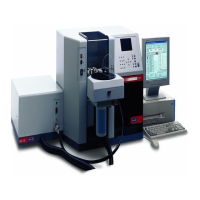1290 Infinity II High-Speed Pumps User Manual 55
3Using the Pump
Solvent Information
Stainless Steel (SST)
Stainless steel is inert against many common solvents. It is stable in the
presence of acids and bases in a pH range of 1 to 12.5. It can be corroded by
acids below pH 2.3. It can also corrode in following solvents:
• Solutions of alkali halides, their respective acids (for example, lithium iodide,
potassium chloride, and so on) and aqueous solutions of halogens.
• High concentrations of inorganic acids like nitric acid, sulfuric acid and
organic solvents especially at higher temperatures (replace, if your
chromatography method allows, by phosphoric acid or phosphate buffer
which are less corrosive against stainless steel).
• Halogenated solvents or mixtures which form radicals and/or acids, for
example:
2 CHCl
3
+ O
2
→ 2 COCl
2
+ 2 HCl
This reaction, in which stainless steel probably acts as a catalyst, occurs
quickly with dried chloroform if the drying process removes the stabilizing
alcohol.
• Chromatographic grade ethers, which can contain peroxides (for example,
THF, dioxane, diisopropylether). Such ethers should be filtered through dry
aluminium oxide which adsorbs the peroxides.
• Solutions of organic acids (acetic acid, formic acid, and so on) in organic
solvents. For example, a 1 % solution of acetic acid in methanol will attack
steel.
• Solutions containing strong complexing agents (for example, EDTA, ethylene
diamine tetra-acetic acid).
• Mixtures of carbon tetrachloride with isopropanol or THF.
Titanium (Ti)
Titanium is highly resistant to oxidizing acids (for example, nitric, perchloric and
hypochlorous acid) over a wide range of concentrations and temperatures. This
is due to a thin oxide layer on the surface, which is stabilized by oxidizing
compounds. Non-oxidizing acids (for example, hydrochloric, sulfuric and
phosphoric acid) can cause slight corrosion, which increases with acid
concentration and temperature. For example, the corrosion rate with 3 % HCl
(about pH 0.1) at room temperature is about 13 μm/year. At room temperature,
titanium is resistant to concentrations of about 5 % sulfuric acid (about pH 0.3).
Addition of nitric acid to hydrochloric or sulfuric acids significantly reduces
corrosion rates. Titanium is sensitive to acidic metal chlorides like FeCl
3
or CuCl
2
.
Titanium is subject to corrosion in anhydrous methanol, which can be avoided by
adding a small amount of water (about 3 %). Slight corrosion is possible with
ammonia > 10 %.
